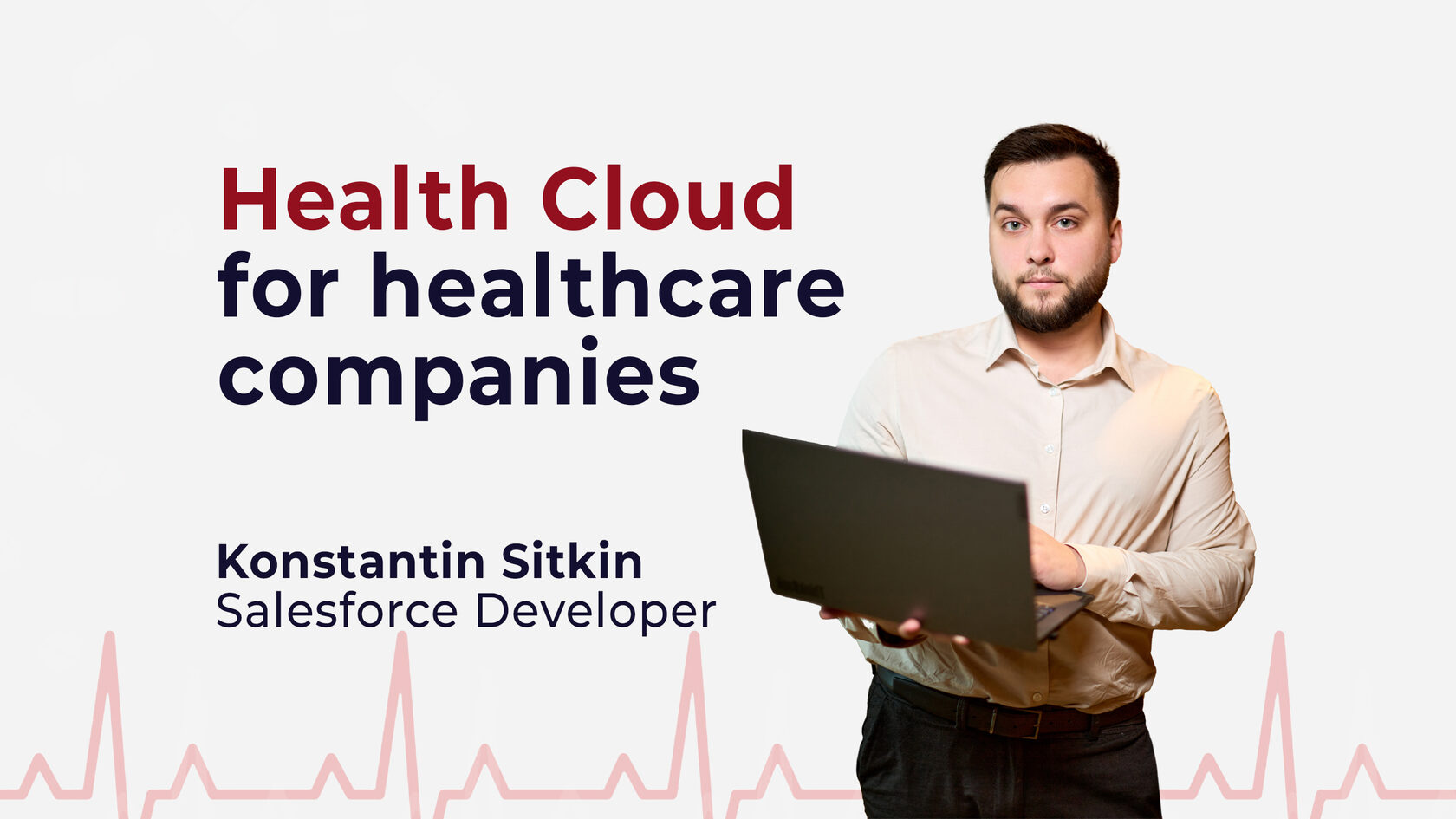This article is prepared by our Salesforce Developer Konstantin Sitkin.

Modern healthcare systems face a range of challenges: growing patient volume, lack of resources, the need to improve the quality and timeliness of service delivery. One of the most effective solutions to overcome these challenges may be the adoption of cloud technologies.
Cloud services provide flexible infrastructure that allows scaling resources according to current needs. This helps reduce IT costs and simplify business operations. One of the leading platforms in this area is Salesforce Health Cloud.
Cloud services provide flexible infrastructure that allows scaling resources according to current needs. This helps reduce IT costs and simplify business operations. One of the leading platforms in this area is Salesforce Health Cloud.
In this article, I want to talk about Health Cloud features that provide a number of benefits to healthcare organizations: increasing physician and nurse efficiency, improving the quality of patient experience, and creating a more accessible and personalized care experience.
Let's take a closer look at some of Health Cloud's capabilities that help increase physician efficiency and improve the patient care.
Let's take a closer look at some of Health Cloud's capabilities that help increase physician efficiency and improve the patient care.
360-Degree View Of Patient Data
Thanks to the centralized storage of each patient's full medical history in the Health Cloud, doctors get instant access to any information they need at any time and from any location.
Through the cloud platform interface, they can immediately view all data previously collected about a patient's health status. This means the doctor doesn't need to search for or request records – all details are always at hand.
Through the cloud platform interface, they can immediately view all data previously collected about a patient's health status. This means the doctor doesn't need to search for or request records – all details are always at hand.

To support the coordination and management of patient care you can use Care Plans. Care Plans focus on the individual patient, allowing healthcare providers to create personalized programs tailored to each patient's unique needs, conditions, and goals.
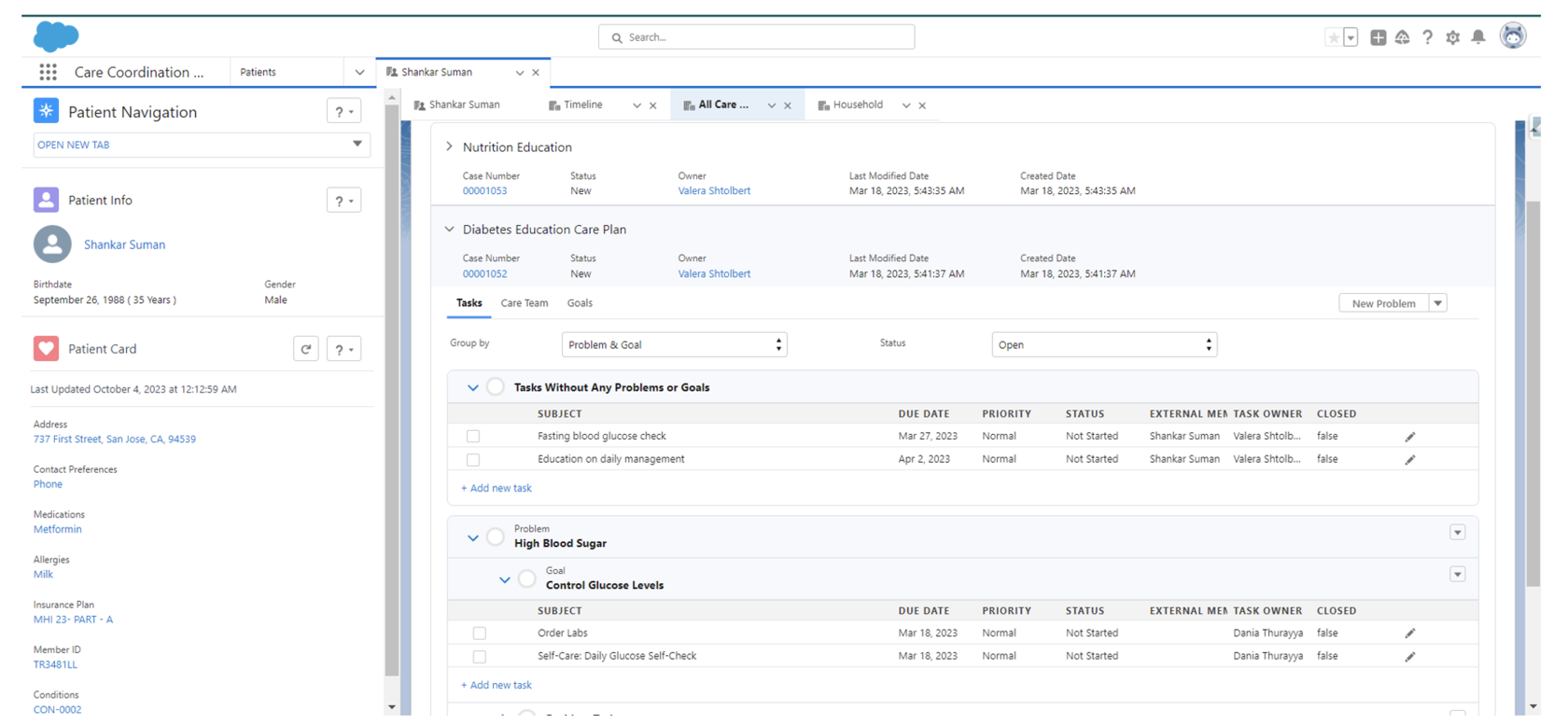
The Timeline tab provides a chronological view of the patient's health-related events, activities, and interactions. It allows healthcare providers to gather and consolidate relevant information from various sources, providing a comprehensive view of a patient's medical history and care journey.

Also Care Plans facilitate collaboration among members of a care team, including physicians, nurses, specialists, and other healthcare professionals. The team can access and update care plan information so everyone is on the same page when caring for a patient.
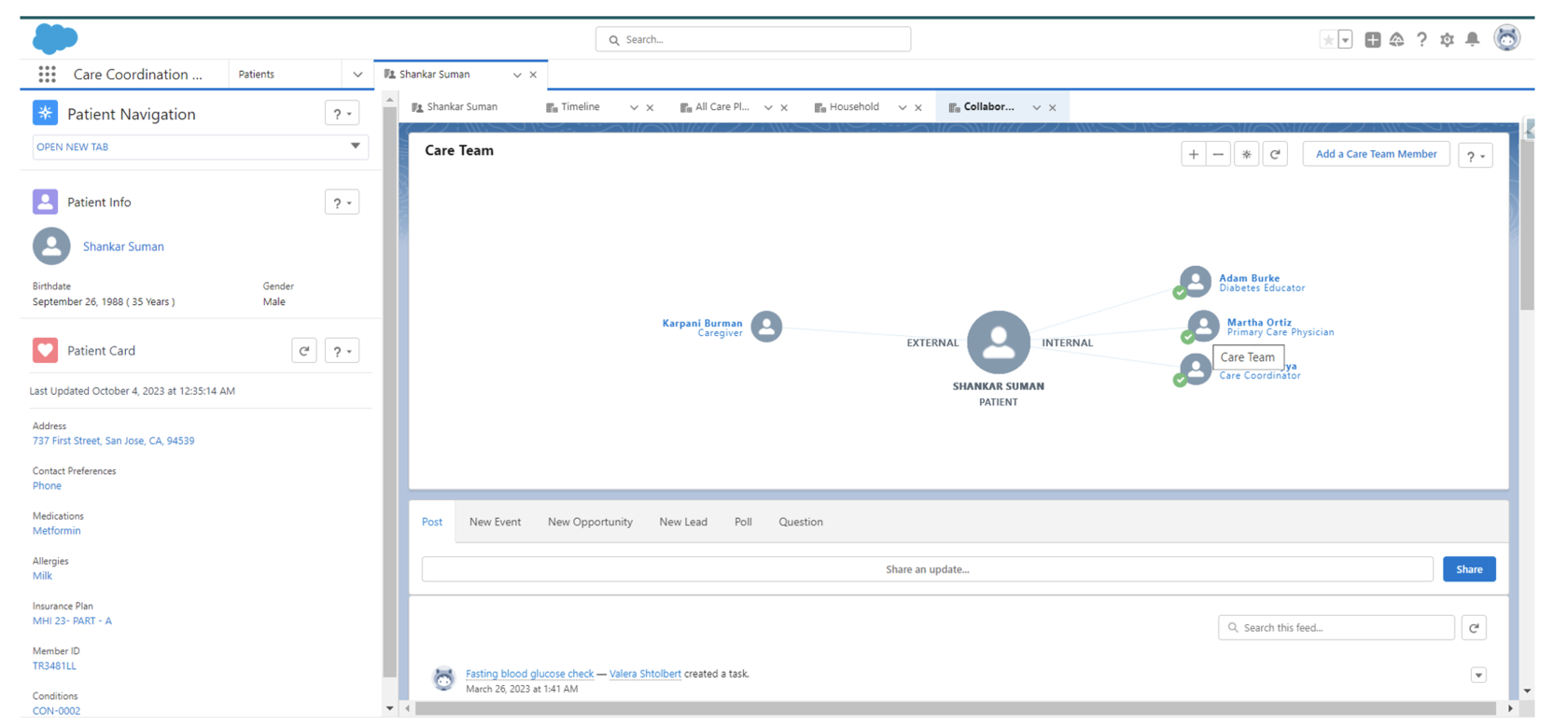
The householding map provides a comprehensive perspective of the individuals you are responsible for. It consolidates patients or members, their care plans, caregivers, households, organizations, and other parties involved in the individual's care, offering a holistic understanding of their support network.

The functionality presented above can be easily customized for any healthcare organization according to its needs, using Health Cloud – Lightning Admin app or Salesforce Setup settings.

Care Programs
Care Programs in Health Cloud provide a valuable enhancement to Care Plans. While Care Plans outline individualized treatment for specific patients, Care Programs take a broader population health approach. The Care Program functionality allows you to create tailored care programs based on specific patient needs, conditions, or treatment plans. It provides a flexible framework to design and configure care programs according to your organization's requirements.
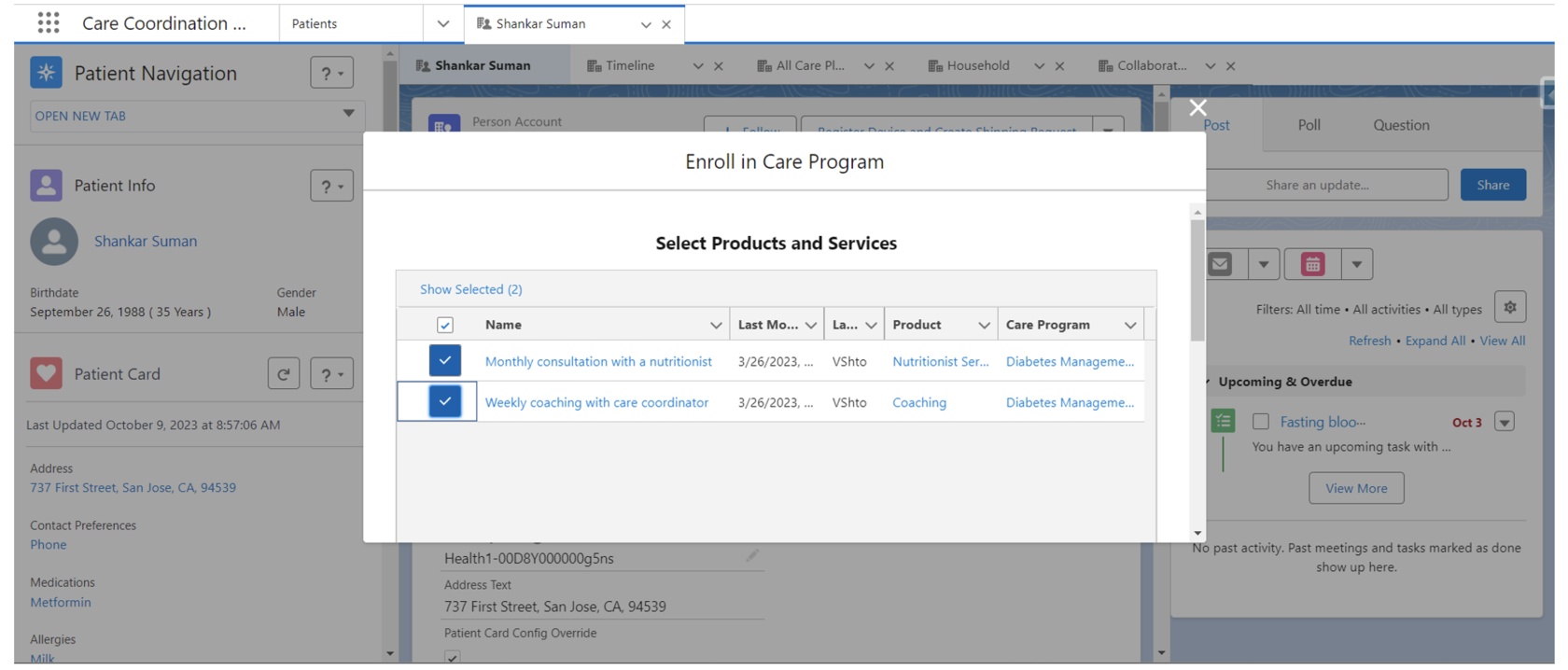
It also offers features such as contest forms and e-signature integration to enhance patient engagement and streamline consent processes.
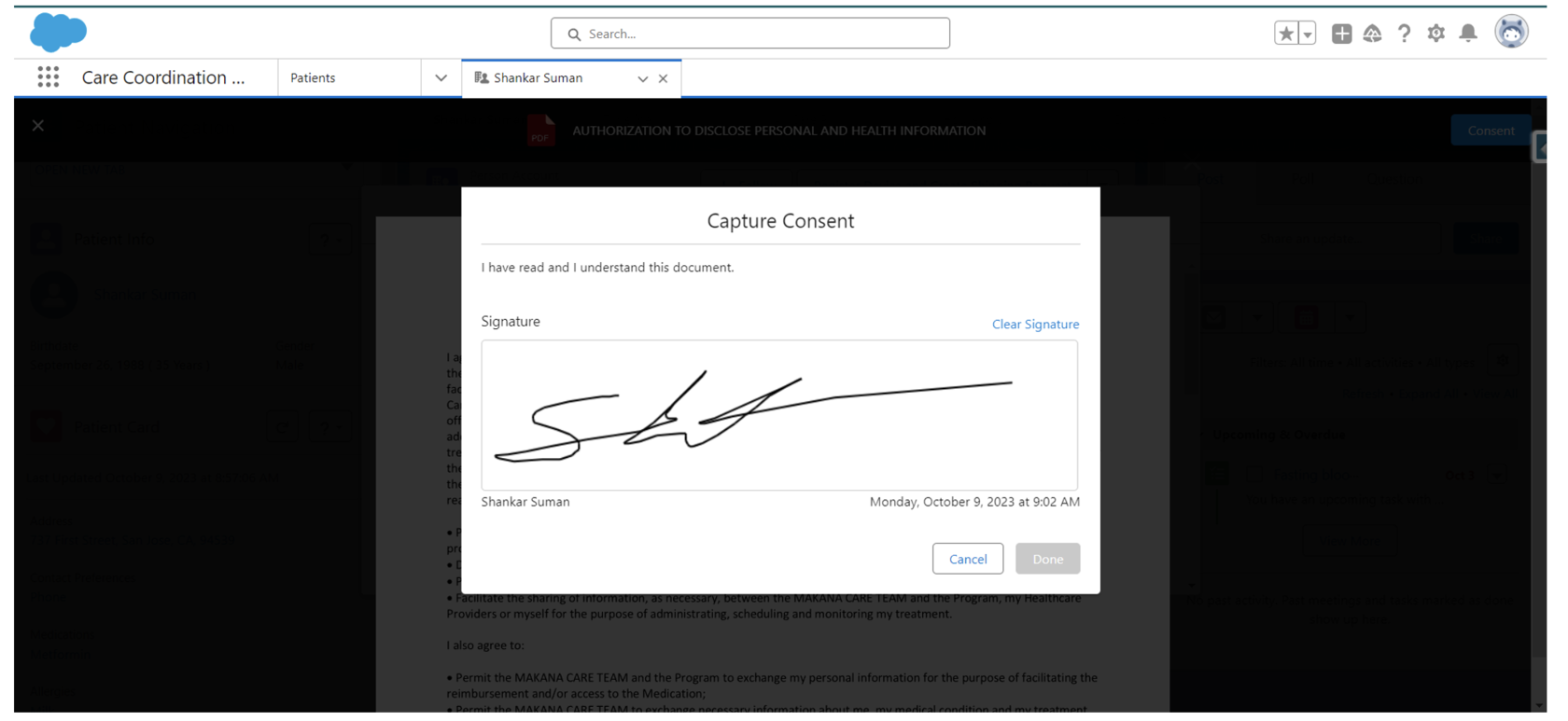
Contest forms enable active patient engagement by collecting valuable feedback, surveys, and assessments. This helps gather insights and improve patient engagement within the care program.

With Care Programs, new organizations can take a high-level, programmatic approach to behavior change and adherence goals across patient groups. When personalized care is needed, Care Programs can connect patients to specialized Care Plans or services. The combination allows both programmatic and individualized patient support.
Provider Search
Provider Search offers a search interface where users can enter various search criteria like provider name, specialty, location, insurance network, availability, and more, to find specific providers. It helps users to narrow down their search and find providers that meet their specific requirements.
When search results are displayed, each provider is typically presented with a profile that includes essential information about the provider. This may include their contact details, specialties, certifications, education, locations, and any additional information that is relevant to their network or practice. Administrators can configure search fields, filters, and display options based on their network requirements, ensuring a tailored and intuitive search experience.
When search results are displayed, each provider is typically presented with a profile that includes essential information about the provider. This may include their contact details, specialties, certifications, education, locations, and any additional information that is relevant to their network or practice. Administrators can configure search fields, filters, and display options based on their network requirements, ensuring a tailored and intuitive search experience.
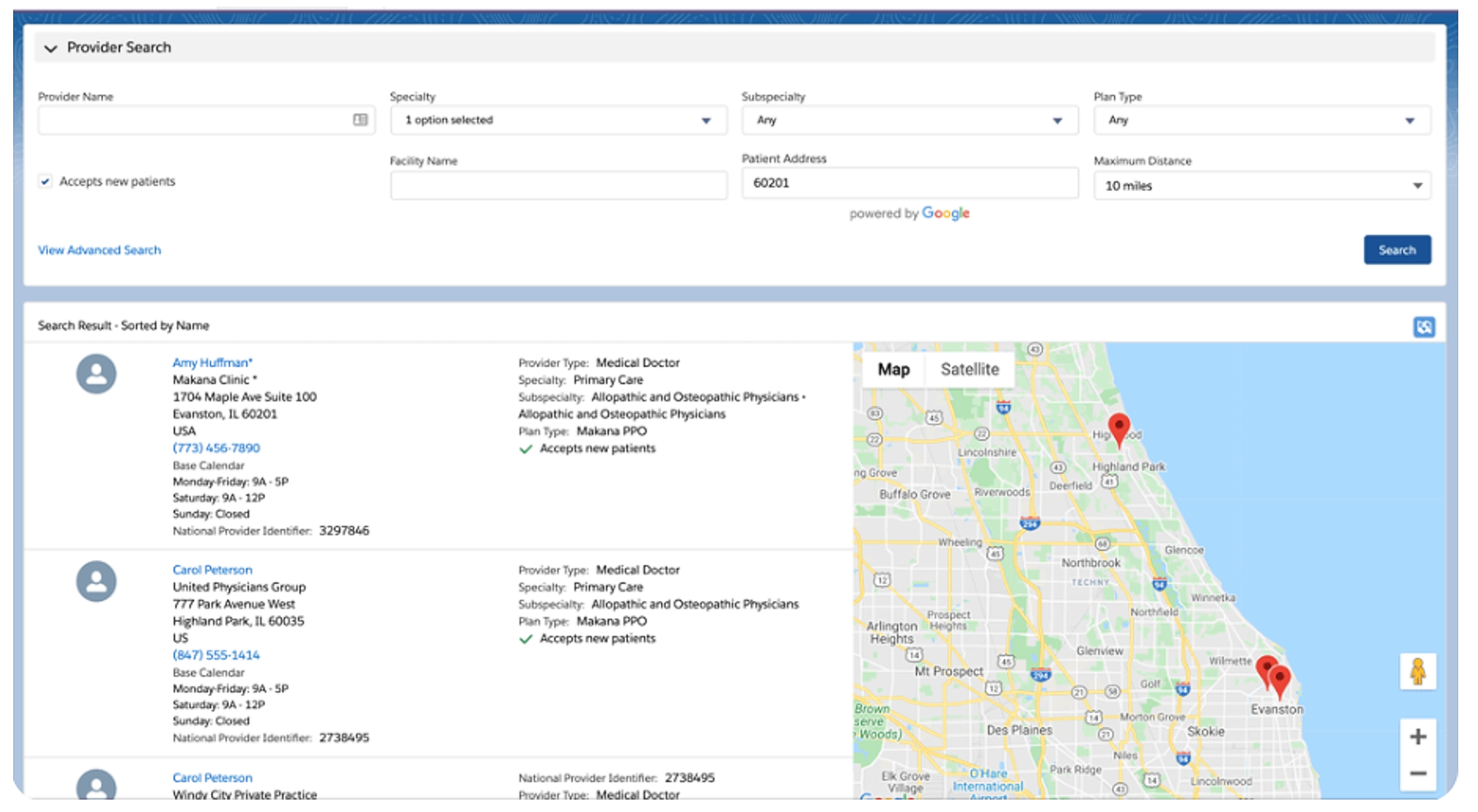
As you can see, by utilizing the Provider Search feature, new healthcare organizations can better use their available resources. They can identify providers with specific expertise or availability, ensuring efficient allocation of patient referrals, appointments, and resources. This leads to optimized resource utilization and improved operational efficiency.
Intelligent Appointment Management
Intelligent Appointment Management offers both using a call center and self-service options for patients to book, reschedule, or cancel appointments online. In the second case patients can access a user-friendly portal or application to view available time slots, select a convenient appointment, and receive automated reminders. This empowers patients with greater control.
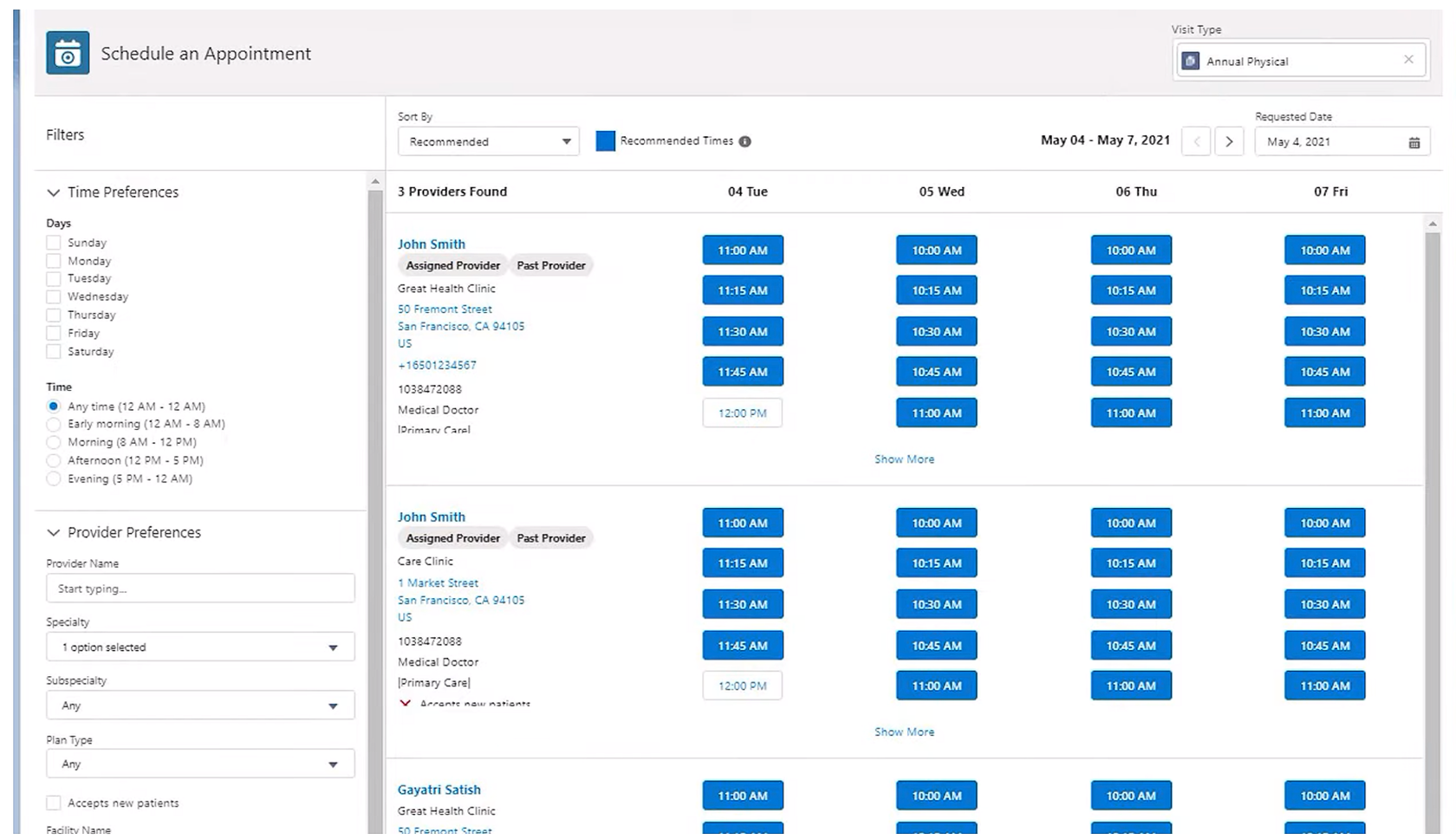
Intelligent Appointment Management often integrates with electronic health record (EHR) systems, allowing seamless information exchange between appointment scheduling and patient health records. This integration ensures that providers have access to up-to-date patient information during appointments, improving the quality of care.
By leveraging the benefits of Intelligent Appointment Management in Salesforce Health Cloud, new healthcare organizations can streamline appointment booking, enhance the patient experience, optimize resource utilization, improve care coordination, and gain valuable insights for operational improvement. It ultimately leads to more efficient and effective healthcare delivery.
Social Determinants
Social determinants of health are key factors that influence individuals' health outcomes and well-being, beyond just medical care. Salesforce Health Cloud recognizes the importance of social determinants and offers features and functionalities to address them within the platform.
When getting new information regarding a patient or member's challenges, a user can record it in a barrier card and then create an intervention – a task they create to tackle specific aspects of the identified barrier. The activity timeline allows you to monitor the intervention tasks associated with the barriers. It provides a comprehensive view of the tasks, ensuring you can easily track their progress and completion.
When getting new information regarding a patient or member's challenges, a user can record it in a barrier card and then create an intervention – a task they create to tackle specific aspects of the identified barrier. The activity timeline allows you to monitor the intervention tasks associated with the barriers. It provides a comprehensive view of the tasks, ensuring you can easily track their progress and completion.

By incorporating social determinants of health into its functionality, Health Cloud enables healthcare organizations to take a holistic approach to patient care. It helps address the root causes of health disparities and empowers healthcare providers to deliver more comprehensive, patient-centered care that considers the social context of individuals' lives.
Care Observation (Remote Monitoring)
Care Observation allows healthcare providers to remotely monitor patients' health conditions, vital signs, and other relevant data. This can include monitoring devices such as wearables, sensors, or patient-reported data. The collected information is then transmitted securely to Health Cloud for real-time analysis and tracking.
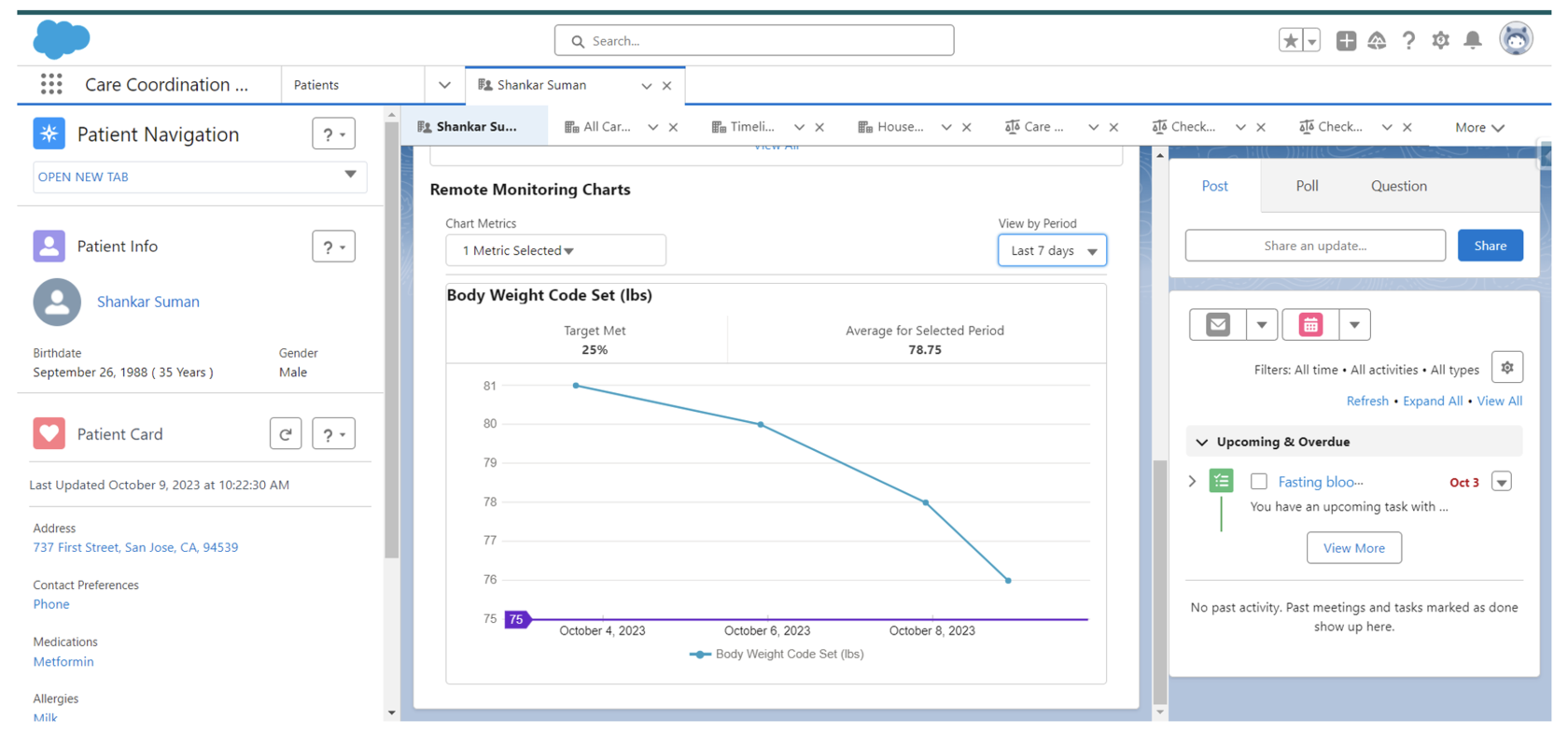
By utilizing remote monitoring charts, care coordinators can efficiently identify healthcare gaps and analyze care metrics over time. These charts offer a comprehensive view of healthcare statistics, including target completion percentages, averages for selected periods, and changes in care observations compared to previous periods. When a patient's biometric data deviates from the expected range, care coordinators can take proactive measures by automatically generating tasks, identifying care gaps, or creating cases. This streamlined approach saves time and enables care coordinators to engage with patients proactively, ensuring timely and effective interventions.
Electronic Health Records Integration
Access to patient data is crucial, however, many healthcare providers face challenges in securely accessing and utilizing patient data.

MuleSoft has the Accelerator for Healthcare – a comprehensive solution designed to address integration challenges in healthcare organizations. It provides pre-built APIs, integration templates, and best practices to simplify complex integration needs and accelerate the delivery of urgent healthcare projects. The solution enables seamless integration between electronic health record (EHR) systems and Salesforce Health Cloud, facilitating the sharing of patient data in real-time.
In summary, Health Cloud provides a robust set of capabilities to address critical needs in modern healthcare. By leveraging Health Cloud's flexible platform, healthcare organizations can overcome today's challenges around rising costs, staff shortages, and quality of care. They can remove data silos, enhance collaboration, and deliver proactive and personalized care. With data-driven insights enabling continuous improvements, clinics and hospitals can transform to thrive in the era of value-based care. Health Cloud ultimately empowers healthcare providers to strengthen engagement, improve outcomes, and drive sustainable success.



